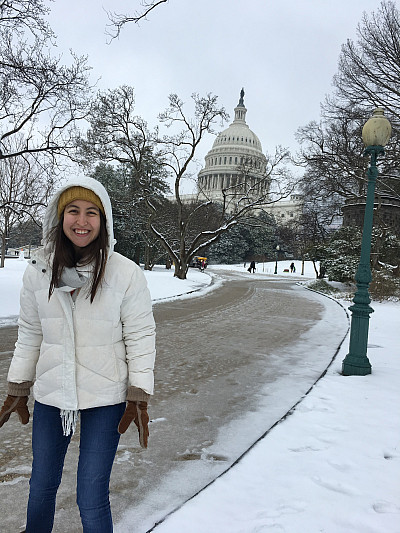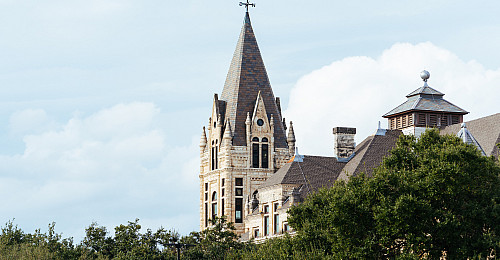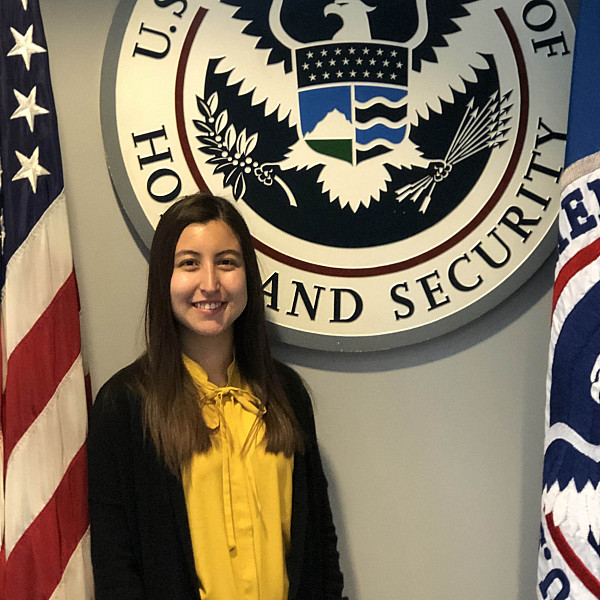News
Leveraging a History Degree
February 12, 2020
February 12, 2020

Spring of 2017 brought with it a new anxiety I was completely unfamiliar with: finding an internship. At the time, I had little to no experience under my belt working in a more traditional white-collar “real” job setting. It didn’t help to be virtually going in blind to the search because I had no idea what to look for; I only knew what I didn’t want. While that mindset helped narrow down my options, it quickly became apparent that I was severely lacking in qualifications for many internship opportunities that interested me. I didn’t do anything noteworthy my freshman year other than proudly decide to pursue history as my major, and as a result, my résumé was not very strong. Consequently, I decided to switch gears by focusing on internships that were more traditionally associated with my major, even if they weren’t opportunities that thrilled me exactly.
While I didn’t realize it at the time, this situation proved to be a very important lesson in learning how to leverage my discipline of choice and tapping into the flexibility of a history degree. Too often are students expected (by parents, friends, Uber drivers, etc.) to pursue career roles that fit preconceived notions of what a given major is supposed to instill. But the reality is that majors are much more transferrable than they seem. In my case, there was nothing wrong with preservation, national park, or museum internships. The problem was that those were simply not the kind of opportunities I sought but rather the only ones everyone thought a history major was equipped for.
Too often are students expected (by parents, friends, Uber drivers, etc.) to pursue career roles that fit preconceived notions of what a given major is supposed to instill. But the reality is that majors are much more transferrable than they seem.
Needless to say that the semester came to a close, and yours truly was still internship-less. By the time finals week rolled around, I’d heard plenty of the adage to “network, network, network!” It was all good and dandy advice, except I was clueless as to how. So you can imagine my surprise when I ended up with a lead for an internship on the last day of exams thanks to networking. I rode the elevator with a coworker who told me about her experience interning the previous year for the Laredo Morning Times (LMT), my hometown’s local newspaper. With no more time and no other internship prospects in front of me, I decided to take her up on the offer to put me in touch with the paper’s editor.
Nick Georgiou, the editor, followed up with me immediately and took me onboard. He was my supervisor for the two-and-a-half months I worked there. While at LMT, I picked up skills in developing and pitching stories, conducting interviews (in person and over the phone), writing in AP style, being the liaison between press agents and media outlets, and attending press and public events. I wrote, drafted, proofread, and translated everything from articles to advertisements. Laredo’s predominantly Hispanic population and uniqueness of being a border town also allowed me to develop these skills in a multicultural context. Writing, interviewing, and speaking in Spanish were crucial components of my job that I performed on a daily basis. Moreover, the ability to generate and publish what could sometimes be considered difficult yet essential narratives helped underscore for me the importance of engaging with the community. The people I had the privilege of working with included a homeless teen student whose father was deported when she was a child, a survivor of domestic abuse, veterans, patients with AIDS, families lacking access to healthcare, illegal immigrants, a disabled father of three, child survivors of trauma and neglect, and more.
Initially, I viewed the skills I brought from SU to the newsroom as few and humble, paling in comparison to those I’d picked up by the end of the summer at LMT. However, it didn’t take long for me to realize it would have been impossible to fulfill my duties without them as a foundation. Furthermore, the skills drilled into me by my history professors enriched my work and allowed me to perform better. Such skills included synthesizing lots of information quickly and formatting it in a coherent manner that was accessible to a wide audience. Another very useful one was proper contextualization. Thanks to essentially being a walking chronology of what happened, when, why, and how in most eras marked by written historical record, I was able to understand and situate current affairs within the broader world stage. Lastly, finding evidence with few leads while on a time crunch in order to piece together a breaking story was very similar to looking for historical evidence—manuscripts, photographs, speeches, government publications—to construct an argument.
While on the surface level, it might seem like such abilities can be acquired anywhere or that anyone can perform them well, I quickly learned that was not the case. They are an innate part and direct consequence of studying history and translate well to daily life, not just to a job. These days, with undergrad behind me, I value all my skills profusely and network much more than ever.















